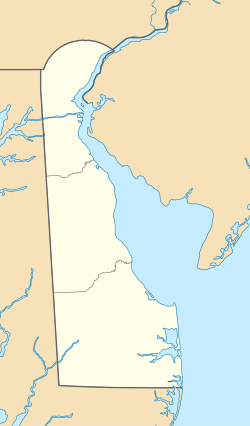F. W. Woolworth Company Building | |
 Facing the corner with Market Street to the left and 9th to the right. | |
| Location | 839 N. Market St., Wilmington, Delaware |
|---|---|
| Coordinates | 39°44′41″N75°32′55″W / 39.744644°N 75.548589°W |
| Area | 0.3 acres (0.12 ha) |
| Built | 1940 |
| Architect | Stakes, H.W. |
| Architectural style | Art Deco |
| Part of | Downtown Wilmington Commercial Historic District (ID10000079 [1] ) |
| MPS | Market Street MRA (65000105) |
| NRHP reference No. | 86003755 [2] |
| Significant dates | |
| Added to NRHP | January 2, 1987 |
| Designated CP | March 24, 2017 |
The F. W. Woolworth Company Building is a historic department store building located in downtown Wilmington, Delaware.




